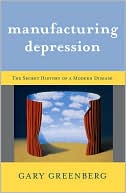Category Books
- Fiction Books & Literature
- Graphic Novels
- Horror
- Mystery & Crime
- Poetry
- Romance Books
- Science Fiction & Fantasy
- Thrillers
- Westerns
- Ages 0-2
- Ages 3-5
- Ages 6-8
- Ages 9-12
- Teens
- Children's Books
- African Americans
- Antiques & Collectibles
- Art, Architecture & Photography
- Bibles & Bible Studies
- Biography
- Business Books
- Christianity
- Computer Books & Technology Books
- Cookbooks, Food & Wine
- Crafts & Hobbies Books
- Education & Teaching
- Engineering
- Entertainment
- Foreign Languages
- Game Books
- Gay & Lesbian
- Health Books, Diet & Fitness Books
- History
- Home & Garden
- Humor Books
- Judaism & Judaica
- Law
- Medical Books
- New Age & Spirituality
- Nonfiction
- Parenting & Family
- Pets
- Philosophy
- Political Books & Current Events Books
- Psychology & Psychotherapy
- Reference
- Religion Books
- Science & Nature
- Self Improvement
- Sex & Relationships
- Social Sciences
- Sports & Adventure
- Study Guides & Test Prep
- Travel
- True Crime
- Weddings
- Women's Studies
Manufacturing Depression: The Secret History of a Modern Disease »

Authors: Gary Greenberg
ISBN-13: 9781416569794, ISBN-10: 1416569790
Format: Hardcover
Publisher: Simon & Schuster Adult Publishing Group
Date Published: February 2010
Edition: (Non-applicable)
Author Biography: Gary Greenberg
Gary Greenberg is a practicing psychotherapist in Connecticut and author of The Noble Lie. He has written about the intersection of science, politics, and ethics for many publications, including Harper's, the New Yorker, Wired, Discover, Rolling Stone, and Mother Jones, where he's a contributing writer.
Book Synopsis
Am I depressed or just unhappy? In the last two decades, antidepressants have become staples of our medicine cabinets—doctors now write 120 million prescriptions annually, at a cost of more than 10 billion dollars. At the same time, depression rates have skyrocketed; twenty percent of Americans are now expected to suffer from it during their lives. Doctors, and drug companies, claim that this convergence is a public health triumph: the recognition and treatment of an under-diagnosed illness. Gary Greenberg, a practicing therapist and longtime depressive, raises a more disturbing possibility: that the disease has been manufactured to suit (and sell) the cure.
Greenberg draws on sources ranging from the Bible to current medical journals to show how the idea that unhappiness is an illness has been packaged and sold by brilliant scientists and shrewd marketing experts—and why it has been so successful. Part memoir, part intellectual history, part exposé—including a vivid chronicle of his participation in a clinical antidepressant trial—Manufacturing Depression is an incisive look at an epidemic that has changed the way we have come to think of ourselves.
Kirkus Reviews
Mother Jones contributing editor and self-described "old-fashioned psychotherapist" Greenberg (The Noble Lie: When Scientists Give the Right Answers for the Wrong Reasons, 2008, etc.) ponders depression and its treatment through the ages. Thirty million Americans now take antidepressant medications. Is this sudden epidemic of depression "not so much the discovery of a long-unrecognized disease but a reconstitution of a broad swath of human experience as illness?" Life is tough, the world is an insecure and often merciless place, and there are bewilderments of loss, stresses and frustrations, not to mention the "melancholy cultivated through fifty years of absorbing life's quotidian blows." Call it the human condition, and Greenberg is the first to say the condition can be crippling; he has suffered bouts of deep depressions for years, smartly conveyed here, including participation in a clinical trial for an antidepressant. However, the author is suspicious that the drug came first and then a vast market was created for them through the interplay of pharmacological and insurance companies, doctors and the FDA. He is also distressed about the drugs' exaggerated claims and sleight-of-hand efficacy statistics. Greenberg focuses heavily on the human element lurking behind the symptoms of depression and their context and meaning. During this tour of depression, the author engages in extended, illuminating discussions of a host of therapeutic techniques, the confounding power of the placebo effect, the evolution of psychopharmacology and the ways in which expectations shape response. A humanistic, witty exploration of the human response to depression.
Table of Contents
1 Mollusks 1
2 Job Versus His Therapists 25
3 Mauve Measles 38
4 The Dangers of Empathy 61
5 Making Depression Safe for Democracy 80
6 What Your Mum and Dad Will Do to You 102
7 The Shock Doctors 127
8 The Acid and the Ecstasy 153
9 Getting High and Making Money 169
10 Double Blind 201
11 Diagnosing for Dollars 225
12 Mad Men on Drugs 253
13 Embracing the Model: Cognitive Therapy 286
14 The New Phrenologists 315
15 The Magnificence of Normal 338
Notes 369
Bibliography 397
Acknowledgments 417
Index 419
Subjects
 Psychology
Psychology  Clinical Psychology
Clinical PsychologyNonfiction
 Psychology
Psychology  Psychology - Theory, History & Research
Psychology - Theory, History & ResearchPsychology & Psychotherapy
 Clinical Psychology
Clinical Psychology  Psychotherapy
PsychotherapyPsychology & Psychotherapy
 Psychological Disorders
Psychological Disorders  Psychotherapy
PsychotherapyPsychology & Psychotherapy
 Psychology - Theory, History & Research
Psychology - Theory, History & Research  Psychology - History
Psychology - HistoryMedical Books
 Psychology & Psychotherapy
Psychology & Psychotherapy  Clinical Psychology
Clinical PsychologyMedical Books
 Psychology & Psychotherapy
Psychology & Psychotherapy  Psychological Disorders
Psychological DisordersMedical Books
 Psychology & Psychotherapy
Psychology & Psychotherapy  Psychology - Theory, History & Research
Psychology - Theory, History & Research
